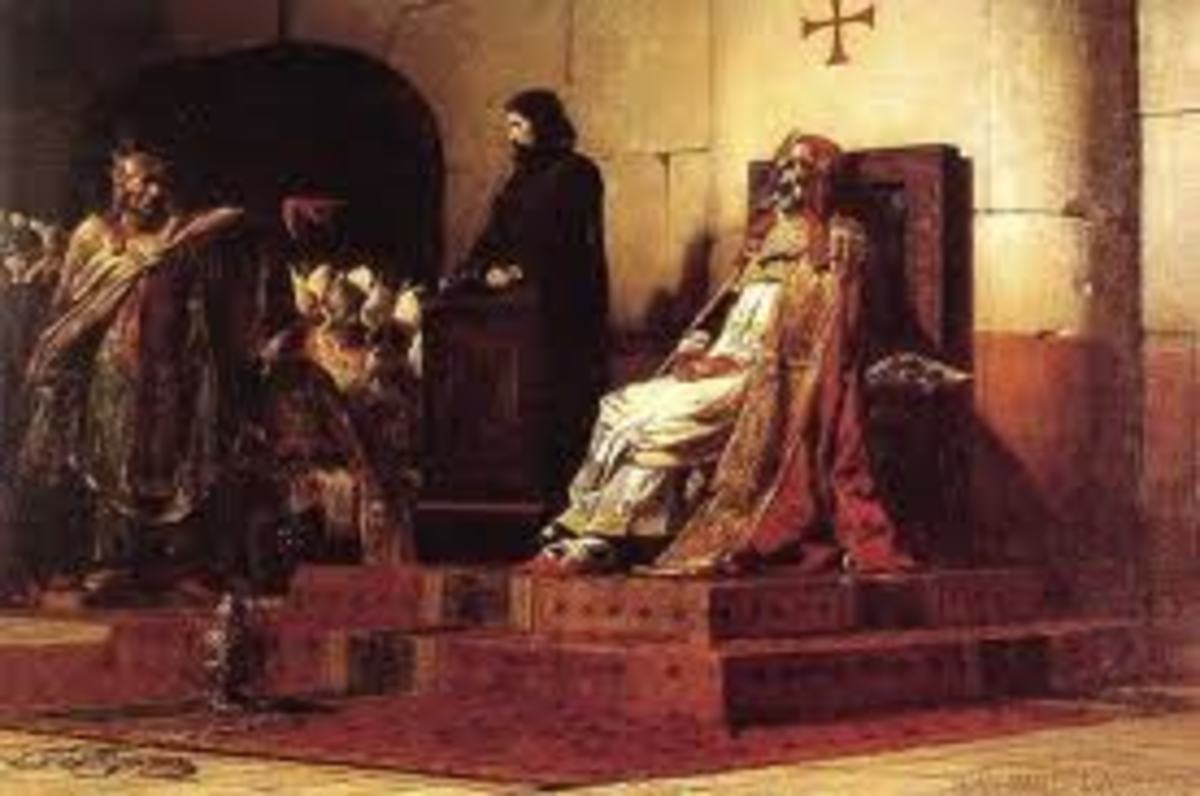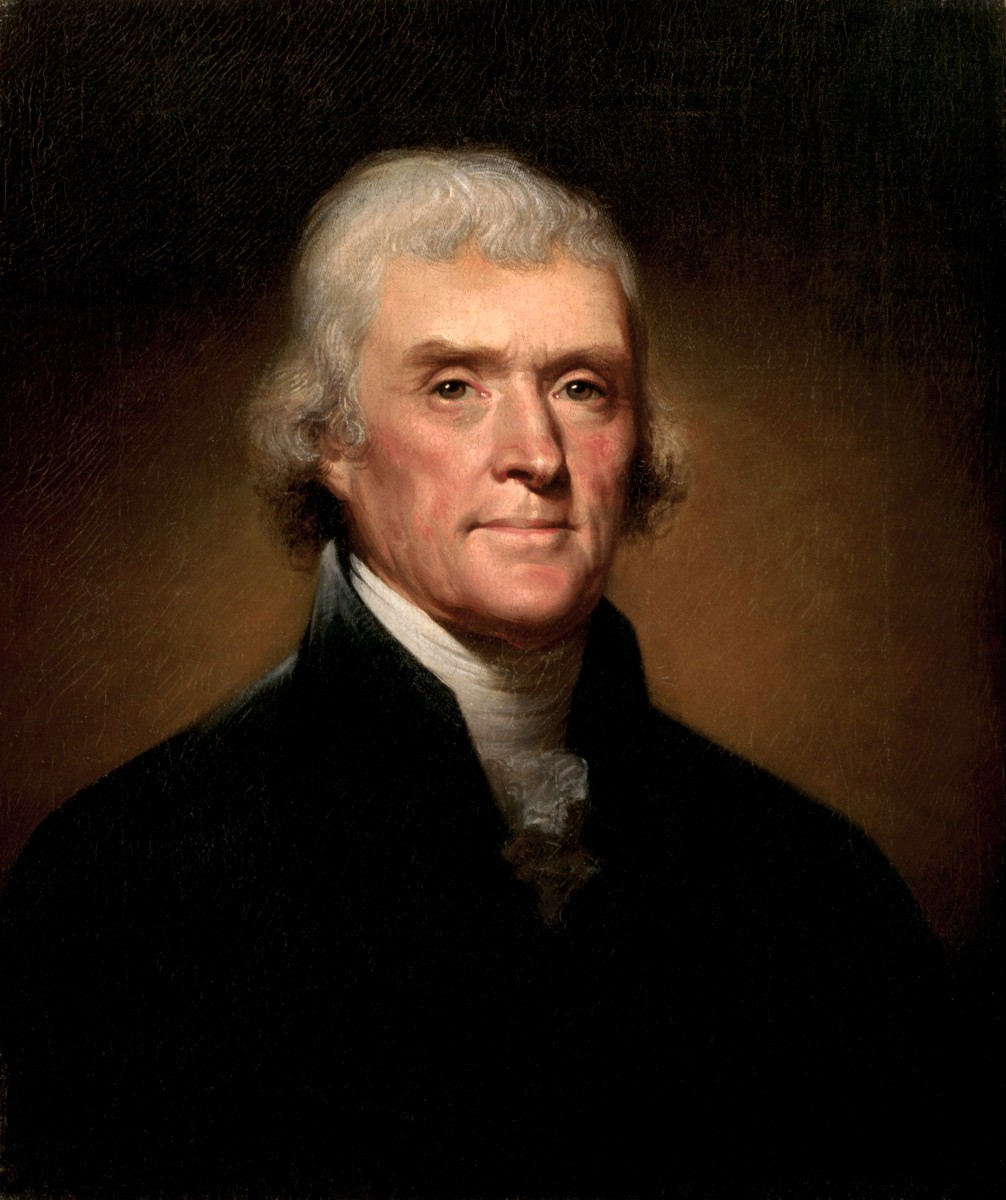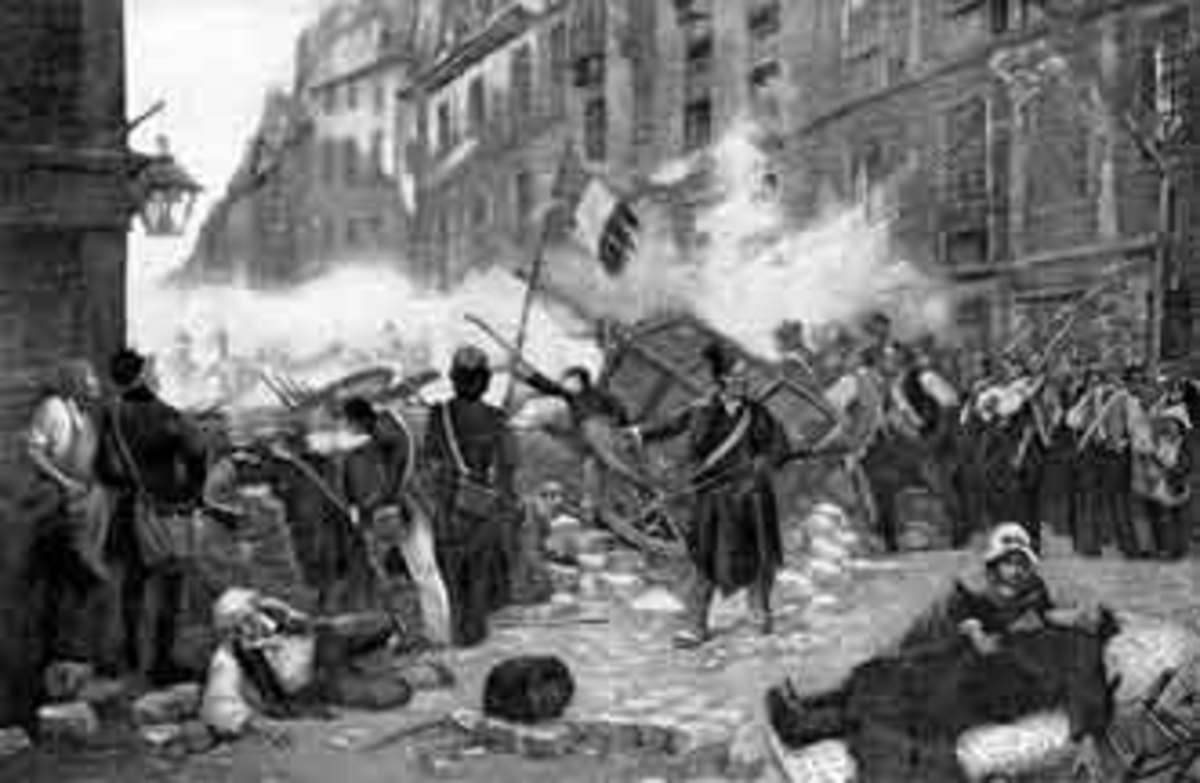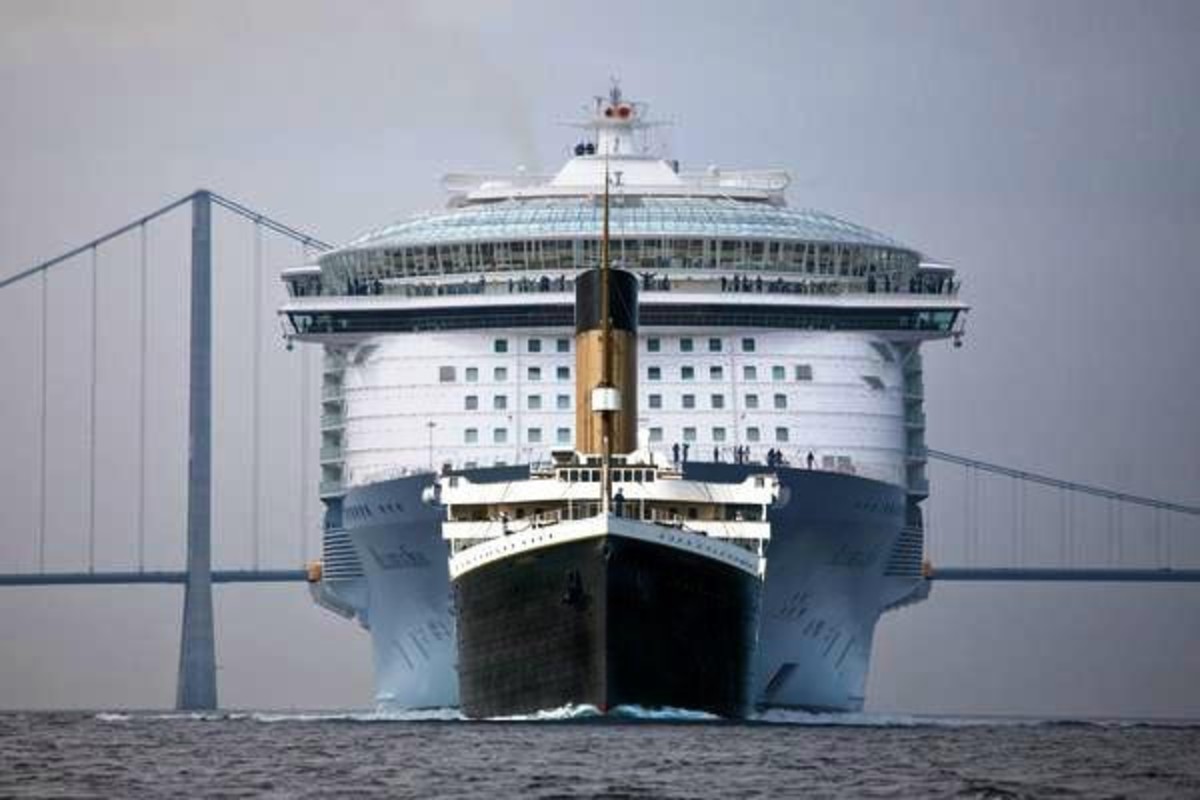Is Ron Paul Thomas Paine Reincarnated?
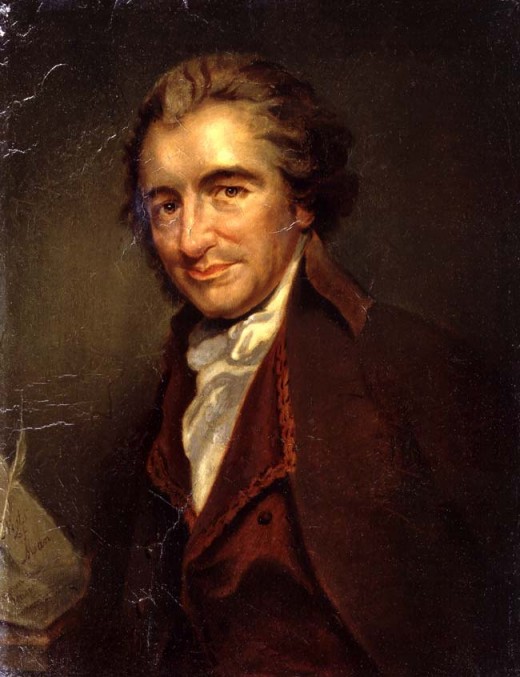
The books I chose to read are: Thomas Paine - Apostle of Freedom by Jack Fruchtman, Jr, The Rights of Man by Thomas Paine, Common Sense by Thomas Paine, and The Age of Reason by Thomas Paine. In the apostle of freedom, the author takes a rather unconventional approach to starting a biography. He begins the biography by stating the people and professors who introduced him to Thomas Paine’s writings, and unusual history. He then goes on to explain how his biography is going to differ from the biographies of his colleagues in that it is going to talk more about Thomas Paine's actual philosophical, political, and religious beliefs, rather than just stating factual evidence of where he was, when he was there, and what he did while he was there. The author then gives a short introduction of the time period, followed by a brief description of Thomas Paine's role in England before moving to America. The real meat of the book starts when the author describes Thomas Paine's voyage to America, and aquatinting with Franklin. The author describes the effects of Common Sense, The Rights of Man, and the Crisis series on the American people, as well as the people of Europe, during the time in the middle portion of the book. Towards the end of the book, the author describes Paine’s struggle to regain his popularity. He ends the book on a rather grim note, stating that an onlooker could have counted the number of people at Paine’s funeral with only the digits on their hands. In the pamphlet Common Sense, Thomas Paine takes the reader on a rather enlightening journey through the perils and fallacies of the European social, political, and religious state of being. Although religion was slightly addressed in Common Sense, it pales in comparison to the utter verbal destruction of organized religion that took place in The Age of Reason. Las but not least, The Rights of Man. The thesis of The Rights of Man can be summed up by: “Popular political revolution is permissible when a government does not safeguard its people, their natural rights, and their national interests. It defends the French Revolution against Edmund Burke.”
Part Two:The author’s thesis can be stated simply as: “Thomas Paine has long been a controversial figure. He's attracted both scholarly and popular interest and will continue to do so, thanks to a spirited involvement in the major social and political issues of the 18th century and early 19th century. He wrote and said things that distinguished him as one of the great original thinkers, whose observations seem intensely relevant even today. But Thomas Paine was not a political philosopher. He was a progressive journalists and statesmen who thought that his duty was to expose wrongs as well as the stupidities and frailties of his fellow human beings.” pg 5. (EB) The author substantiates this thesis in a number of ways. He does so by first defining the terms political philosopher, progressive journalists, and statesmen. He then goes on to explain how Thomas Paine fit the description of progressive journalists and statesmen. He does this by citing various examples of causes/issues that Thomas Paine had a hand in. Some of these issues include: slavery, women's rights, animal protection rights, and the rights of people to choose their own form of government and to revolt against their governments. He then goes on to describe how Paine did these things out of heated passion, and had no intention of receiving any sort of financial or monetary benefit from them.
He says: “there can be no doubt about Paine's intentions. He had no financial or other private interests at stake. This is clear in his first salvo, an open letter to Silas Deane, which was in response to a December 5, 1778 apologia from Dean himself, who are complained that Congress should shut its ears against his defense.” Pg12. He also substantiates his thesis by providing letters written between Paine and the other Founding Fathers. Those letters help us to see Paine’s misfortunate journey from fame to shame.
As for the second book that I read, Common Sense, the author Thomas Paine states his thesis on one of the very first pages. He says, “As a long and violent abuse of power, is generally the means of calling the right of it in question and as the K- of England had undertaken in his own right, to support the parliament in what he calls theirs, as the good people of this country are grievously oppressed by the combination, they have an undoubted privilege to inquire into the pretensions of both, and equally to reject the usurpation of either.”pg1.
He then goes on to say, “the cause of America is in a great measure the cause of all mankind. Many circumstances hath, and will arise, which are not local, but universal, and through which the principles of all lovers of mankind are affected, and in the event of which, their affections are interested. The laying of a country desolate with fire and swore, declaring war against the natural rights of all mankind, and extraditing the defenders thereof from the face of the earth, is the concern of every man to whom nature hath given the power of feeling.” I firmly believe that these two statements sum up the Paine’s thesis in writing Common Sense. The other two books/papers I read were The Age of Reason, and Crisis no.1. In The Age of Reason, Paine basically destroys any opportunity he had for reconciliation with his fellow American Founding Fathers. In this book, he essentially tears down all forms of organized religion, stating that, “religion is a means of terrorizing and enslaving mankind for profit and power.” Pg 32.
Part Three:My person assessment of these books:
Thomas Paine was born on January 29th, 1737 in Thetford England. He's the son of a corsetiere and left school at the age of 12. He worked as an excise tax officer, getting fired twice in a four year period. He later made the acquaintance of Ben Franklin, who suggested he travel to America, and even sponsored his trip. Franklin wrote a letter of recommendation for Paine which helped him gain employment after he arrived. He is considered a second-tier founding father, and his most famous for writing the pamphlet Common Sense. This is about the sum of what most people care to know about Thomas Paine. As for the rest of the story, let me start of the end.
Thomas Paine died on the morning of June 8, 1809 at his home at 56 Grove Street, Greenwich New York. He was buried soon after with a funeral consisting of an unknown woman and her son in a carriage, a Quaker on horseback and two free slaves. Six people in total attended. This compared to an estimated 300,000 mourners who attended Benjamin Franklin's funeral in 1790 (equivalent to 73.4 million today). Paine's obituary in the New York citizen that day read in part “he had lived long, did some good and much harm.”This opinion was shared by most of his former revolutionary compatriots, and the country as a whole. Most of the men that were considered our founding fathers publicly relegated his role in the revolution as minimal at best. Personal correspondence between these men and Paine told a very different story. All of them applauded his role and obviously held in the highest esteem. Why was there such a disparity in the public and private opinions of this man's life and work? Let us examine the harm that he actually did.
Shortly after arriving in America during the winter of 1774, Thomas Paine was hired by the Pennsylvania Magazine as a staff writer. In March of 1775 he wrote and published his first article. It was an attack on American slavery. It contained all the arguments that can be made against the most infamous of all institutions. He pleaded for justice and the rights of the Negro. Five days after the article appeared, the American Anti-Slavery Society was formed. A month later he wrote a second article. It was an attack on the practice of dueling. His opinion was that this was a barbarous act that doesn't settle anything. In May 1775, he wrote another article named “protest against cruelty to animals.”In August 1775, he wrote an article that was a plea for the rights of women. In other writings during 1775 he was the first to suggest the union of the colonies. Well before the Declaration of Independence was issued he started using terms like Free and Independent States of America, United Colonies and the Glorious Union. He was the first person to write the words of the United States of America. Paine wrote Common Sense in 1775 and it was published in January 1776. It was the first formal appeal for independence. It is written in a way that the common man can understand. It helped fan the flames for complete separation from Great Britain for more than 100,000 oppressed citizens. While Paine was doing all this harm, most of the other later, more famous founding fathers were still on the fence.
“If you ever hear of me joining in any such measure (a separation from Great Britain) you have my leave to set me down for everything wicked” – George Washington, May 1775.
“It is not the wisher interest of the government or of any upon this continent separately or collectively, to set up for independence.” – George Washington, May 1775
Later that year, Benjamin Franklin told the group in Chatham Massachusetts “no one in America is in favor of separation. As matter of fact, the people of the colonies want redress of their grievances, they are not dreaming of separation, of independence.”
The Declaration of Independence was issued and the colonies were at war. Many historians believe that the original first draft of the declaration was written by Paine. The original passages argued against slavery and mentioned the populace as women and children. The style used was unmistakably reminiscent of Paine. Jefferson always referred to the people as men and he certainly would not have protested slavery being an owner himself. This of course, is all hearsay and possible prove.
The war was off to a rough and rocky start. Washington's army lost several battles. His troops were almost freezing to death trying to make it through the winter of 1777. Washington pleaded with Congress for money to buy supplies and pay his troops that were on the verge of mutiny. There was no money to be had. Or it was critically low. In December 1776, Thomas Paine published the first of what is known as the Crisis Papers. These were designed to motivate and inspire the population in the seemingly insurmountable struggle. Washington was so inspired that he ordered the rest of these to be read to his troops at Valley Forge. The positive effect was immediate.
The first paragraph of Crisis No. 1 goes as follows:
“These are the times that try men's souls. The summer soldier and the sunshine patriot will, in the crisis, shrink from the service of their country; but he that stands it now, deserves the love and thanks of man and woman. Tyranny, like hell, is not easily conquered; yet we have this consolation with us, that the harder the conflict, the more glorious the triumph. What we obtain too cheap, we esteem too lightly: it is dearness only that gives everything its value. Heaven knows how to put a proper price upon its goods; it would be strange indeed if so celestial an article as freedom should not be highly rated. Britain, with an army to enforce its Tyranny, has declared that she has a right to bind us in all cases whatsoever, and if being bound in that matter, is not slavery, then is there not such a thing as slavery upon earth. Every expression is of us; for so limited a power can belong only to God.”
Paine then traveled to France and returned with a ship full of clothing, munitions and a few million dollars from King Louis XVI. His contributions during the war were immeasurable.
Once the war was over, he was asked by Congress to offer the complete history of the war. He declined because he felt that his talents would be better used abroad helping other oppressed people gain their freedom. The history was eventually written with Paine’s contribution to the Revolution appearing literally as a footnote. Ben Franklin once said to Paine, “Where liberty is that is my country.” Paine replied, “where liberty is not, that is my country”. With this in mind, and feeling that his services were no longer needed in America, he was off to England.
Thomas Paine was not a politician. He had not fought for independence for seven years to enjoy the spoils once it was won. He wanted no public office. If anything, once our government was formed, it started to come under his suspecting eyes and became the object of his suspicious scrutiny. In his words, “Government, even in its best state, is but a necessary evil; in its worst state, an intolerable one.”
Paine traveled to England because he wanted to inform the English people of their rights. He wanted to expose the pretenses, follies and fallacies, the crimes and cruelties of nobles, kings and parliaments. Hoping to speed up their day of freedom, he wrote the Rights of Man. The government was terrified by this book and tried to suppress it. Paine was indicted, and everyone who published or sold it was arrested. Millions of English citizens were told that they were all from the same mother and entitled to share equally in her gifts. Englishmen owe many of the rights and freedoms that they enjoy today to this publication. Paine fled England with the feeling that he had sufficiently spread the seed of freedom there. He traveled to France to pursue what may have been his noblest cause, to try and save the life of King Louis XVI.
Thomas Paine’s fame preceded him in France. His services for the cause in America were well known. The Common Sense pamphlet was then translated to French and was immensely popular. Paine was preaching a new gospel and the French loved it. He was so popular in France that he was elected by three constituencies to represent them at the national convention. He chose to represent Calais. The convention was in favor of putting Louis XVI death paid. Paine did his best to have Louis’ his life spared. The argued that as France had been the first of European nations to abolish royalty let us also be the first to abolish the penalty of death. As he spoke, the shadow of the guillotine coldly passed over him. He was arrested and put in prison in December 1793. He appealed to President Washington through messengers to help them, but to no avail. Washington repeatedly ignored Paine’s requests. His reason was that he wasn't sure of Paine should be considered an American citizen. Paine was infuriated to the point that he had an open letter published which explains some of Washington's mistakes and shortcomings during the war. The letter was riddled with personal attacks against Washington but never spotted in public. With the aid of James Monroe, he was finally released in November 1794.
Thomas Paine returned to America hoping to spend the rest of his years surrounded by the people whose freedoms he worked so hard for so many years to attain. He expected to be loved and admired by the American public. He was wrong.
After Paine’s publication of The Age of Reason, his already negative image rapidly turned almost every religious institution against him. The Catholics, the Anglicans, the Puritans, the Jews, the Muslims, and many others now hated Paine because of The Age of Reason. This book ripped organized religion to shreds… But, the religious part of society was not the only part that disliked Paine.
Here I will list the major groups of people who disliked Paine, followed by famous people who disliked him:
· The Federalists
· The Clergy
· Politicians in general
· Slave Owners
· Benjamin Franklin
· George Washington
· John Adams
· James Madison
· Alexander Hamilton
· Thomas Jefferson
With all these in mind, I feel as if it is only fair to explain why these men hated Paine. For the most part, many of them disliked Paine due to his radical religious views. The Federalists disliked him because he was in favor of small government or no government at all. The Clergy did not like him because of his writings/opinions in The Age of Reason. Politicians did not like him because the very system upon which they made a living was constantly being shook up by him. Slave owners disliked him because of his anti-slavery views, which he openly expressed multiple times. If Thomas Paine would have been born in 1960, he would most likely have a hit talk show on CNN. He was, give or take a little, the Christopher Hitchens, William f. Buckley, Noam Chomsky, Howard Zinn mix of the time.


